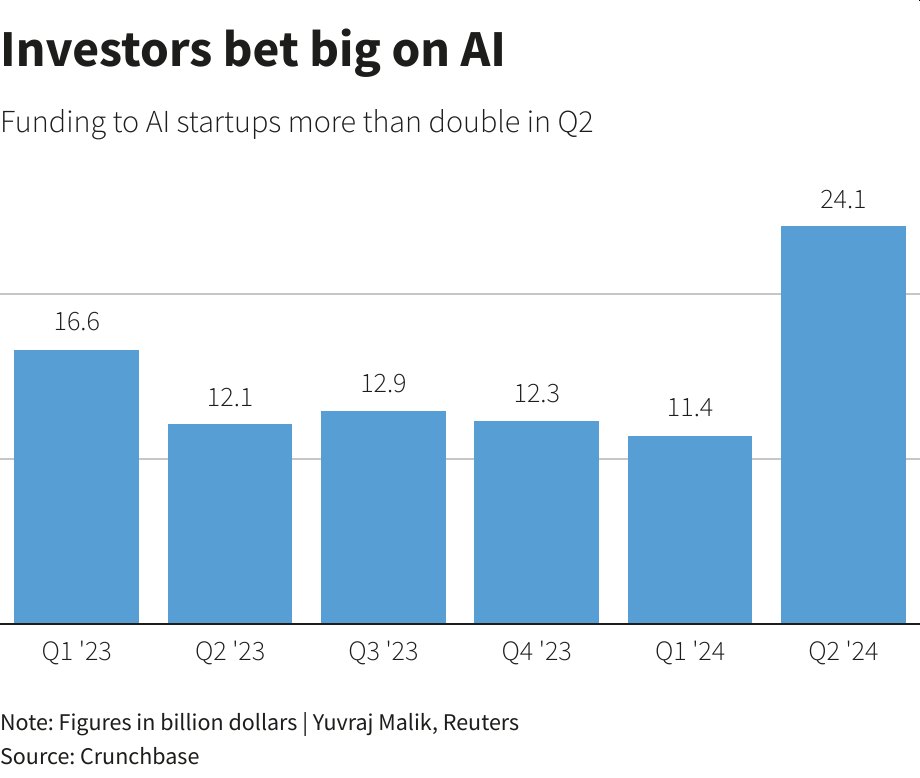AI startup funding more than doubles in Q2, surges to $24 billion
Posted On July 9, 2024
0
2.1K Views

Trending Now
Top Tech News Today, January 26, 2026
January 26, 2026





